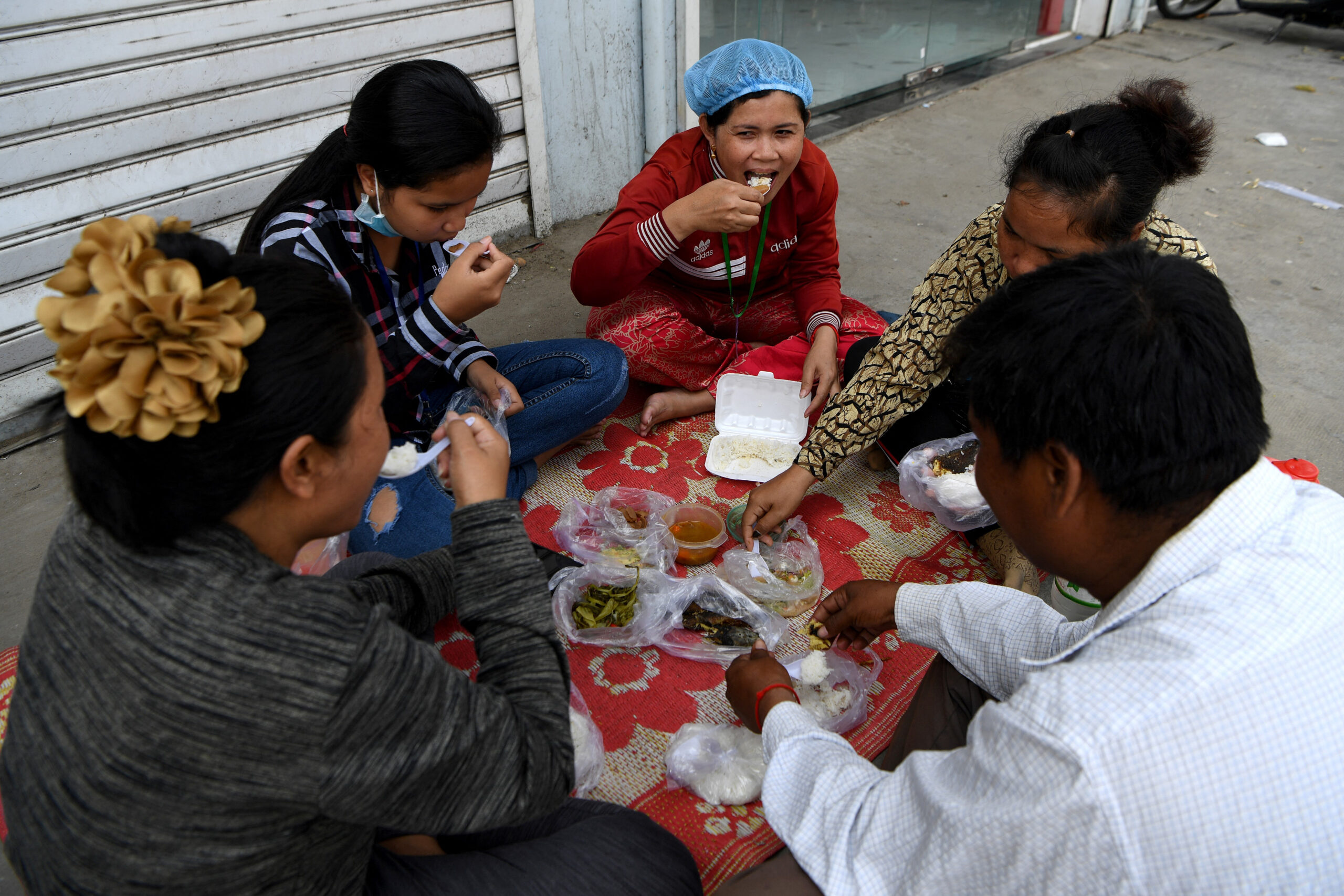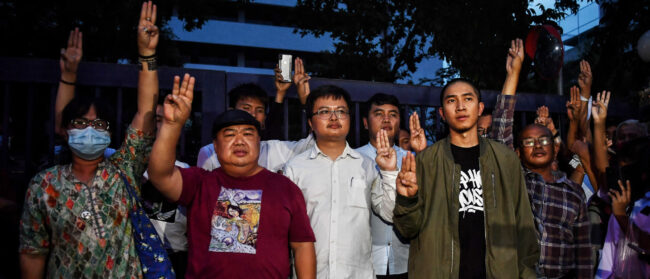It has been ten years since Cambodia first imposed a ban on sending Khmer domestic workers to Malaysia following dozens of reports of abuse by Malaysian employers, including overwork, sexual harassment and verbal and physical assault.
Since then, the Cambodian government has taken several steps to ensure the safety of domestic workers abroad. These include adopting Sub-Decree 190, which regulates recruitment agencies and provides complaint mechanisms to protect workers from exploitation, enacting new ministerial regulations and signing Memoranda of Understanding with key receiving countries.
While these legal protections are crucial to safeguarding the rights of Cambodian domestic workers in other countries, it is difficult to ignore the lack of similar protections for employees in the same industry within Cambodia.
Current employment laws and guidelines do not fully protect Cambodian domestic workers by failing to limit their hours, guarantee paid leave, provide social security benefits or even recognise these jobs as a distinct work sector in national labour laws.
This lack of legislative coverage affects a significant number of people. There are more than 240,000 domestic workers in Cambodia, according to a 2017 International Labour Organisation (ILO) estimate. For many middle-class families in Phnom Penh, for example, having at least one domestic worker is not uncommon.
Nor is it unusual for these domestic workers, usually female, to have begun their employment in childhood after poverty forced them to give up formal education to provide for their families. Most reside in their employers’ homes and many have stories of slave-like conditions under which they are forced to labour.
Each year on International Domestic Workers’ Day, local organisations like the Independent Democracy of Informal Economy (IDEA) amplify demands by domestic workers for more government protection. With the Covid-19 pandemic holding the world firmly in its grip, these calls have become more desperate as domestic workers are left with no choice but to remain in abusive work environments to make ends meet.

The root of the problem lies in the failure by the Cambodian government and society at large to recognise domestic work as employment like any other. The low social status of domestic workers in Cambodian society is obvious.
The nation’s labour law, which ensures protection for most workers in the country, explicitly excludes domestic workers from most of its provisions, apart from those pertaining to forced labour, occupational accidents and freedom of association.
Efforts to ameliorate this problem only began in May 2018 when the Ministry of Labour and Vocational Training issued a ministerial regulation, Prakas No. 235 on the Working Conditions for Domestic Workers, which specifies an employment contract between a domestic worker and employer should include protections for weekly time off and details of wage payment and dispute resolution.
Though a good first step, the regulation’s key shortcoming is its lack of minimum requirements for working conditions, as the labour law provides, or details of the consequences for violating the rules.
The nation’s labour law, which ensures protection for most workers in the country, explicitly excludes domestic workers
A 2013 ILO study on the living and working conditions of domestic workers in Cambodia sheds light on the daily struggles these workers face because of their exclusion from the labour law. The study involving 550 domestic workers found almost half of the respondents began work before 6am and ended between 6 and 8pm.
These hours far exceed normal working shifts permitted for other employment categories, which the law limits to no more than eight hours per day and 48 hours per week. But more than 90% of domestic workers in the survey reported they work seven days weekly.
Another survey conducted by the Centre for Policy Studies in 2017 suggests domestic work also is often poorly compensated. Among the 600 workers interviewed, 60% made less than $50 (about 200,000 KHR) per month, with many saying they were forced to work overtime. Amongst those who worked overtime, 18% said they were never compensated for the extra labour.
By contrast, employment in the garment industry, the primary occupation sought by women migrating from the provinces to Phnom Penh, fetches about $153 monthly, more than three times the rate for domestic work.
Though these two studies were conducted before the issuance of Prakas No. 235, it is unlikely the situation has improved much, since the regulation does not suggest normal hours for domestic workers. Reports of overwork remain rampant.
While other workers are entitled to paid holidays thanks to the labour law’s protections, paid leave is a luxury for domestic workers. Employees in other industries are entitled to paid public holiday leave, paid annual leave at a rate of 1.5 work days per month of continuous service, seven days of paid special leave and maternity leave.
Under Prakas No. 235, domestic workers are only entitled to paid public holiday leave and weekly time off lasting a minimum of 24 consecutive hours. Prakas No. 235 is largely silent on overtime and fails to specify minimum, paid annual leave requirements. Annual leave arrangements are included in employment contracts, leaving employers to determine the amount of free time.
Before the issuance of the prakas, most domestic workers usually were allowed leave only for religious celebrations and national holidays. Among respondents to the 2013 ILO study, 90% reported annual leaves rarely exceeding two weeks. Only 35% of respondents indicated they had a weekly day off.
Determining whether the prakas has led to improvements on either front is difficult because research data is scarce and the sector is mainly informal. Along with heightened protections, more studies are needed to document Cambodia’s domestic worker employment conditions.
Domestic workers also are ineligible for social security benefits. The Law on Social Security only protects workers covered under the labour law. Domestic workers are not entitled to any of the extensive benefits listed in the Occupational Risk Scheme and the Health Care Scheme, including medical care, daily allowance, disability pension, funeral benefits, survivor pensions and maternity leave.
The labour law includes domestic workers in its provisions for employer liability for work-related accidents. Yet this is insufficient, considering the impoverished backgrounds of most of these workers. If illness strikes, exclusion from social security benefits could put them into extreme debt. Not only would they incur considerable medical expenses, they also would lose their means of generating income through manual labour.
Cambodia’s challenge in regulating domestic workers’ rights can partly be attributed to the sector’s informality. The 2013 ILO study found almost 90% of the terms and conditions of domestic employment are not stipulated in written contracts. This could be mitigated by recognising household workers as formal employees in the eyes of the law, even without the benefit of written contracts.
Cambodia has yet to ratify the ILO’s Domestic Workers Convention No. 189, which should be a first step toward providing dignity to hundreds of thousands of workers. In the ILO’s Decent Work Programme for Cambodia 2019-2023, the government promised to prioritise social security coverage expansion to include domestic workers. The government also made a commitment to adopting a roadmap to ratifying Convention 189.
The Cambodian National Social Security Fund has since worked on these priorities with GRET, an international development NGO, on Social Protection: Innovation for the Informal sector (SPIN). The three-year pilot project aims to extend health insurance to 1,200 domestic workers and about 3,000 drivers.
Cambodia’s challenge in regulating domestic workers’ rights can partly be attributed to the sector’s informality
Yet there have been no further announcements on the government’s progress in ratifying Convention 189 or plans to include domestic workers in the labour law.
Associations such as IDEA, the Cambodian Domestic Workers Network and the Association of Domestic Workers advocate for domestic worker rights. However, since domestic workers are excluded from the Law on Trade Unions, these organisations are considered NGOs without the rights of trade unions to engage in collective bargaining.
Cambodia has two years left to fulfill its promises to household workers. The government plays the biggest role in this endeavor, but everyday citizens also have a responsibility and opportunity to help enact change.
One way is to support NGOs advocating for domestic worker rights. This can be done through donations to raise awareness about the harsh realities of some household work situations, supporting campaigns and workshops educating domestic workers about their rights and volunteering to help establish and maintain emergency hotlines for domestic workers is another means of support.
Employers can take action by assessing whether they are sufficiently remunerating domestic workers, providing them with ample rest time or cultivating an environment in which workers feel safe to air concerns.
The fight for the rights of household workers is far from over. Cambodia has made some progress for its domestic workers abroad. Now the country must turn its attention to those at home.
Dolphie Bou is a Cambodia native and undergraduate student at Yale-NUS College in Singapore. Anju Mary Paul is an associate professor of sociology and public policy at Yale-NUS. This commentary draws on the Global Care Policy Index Project assessing national policies on unpaid family caregivers and paid domestic workers.


